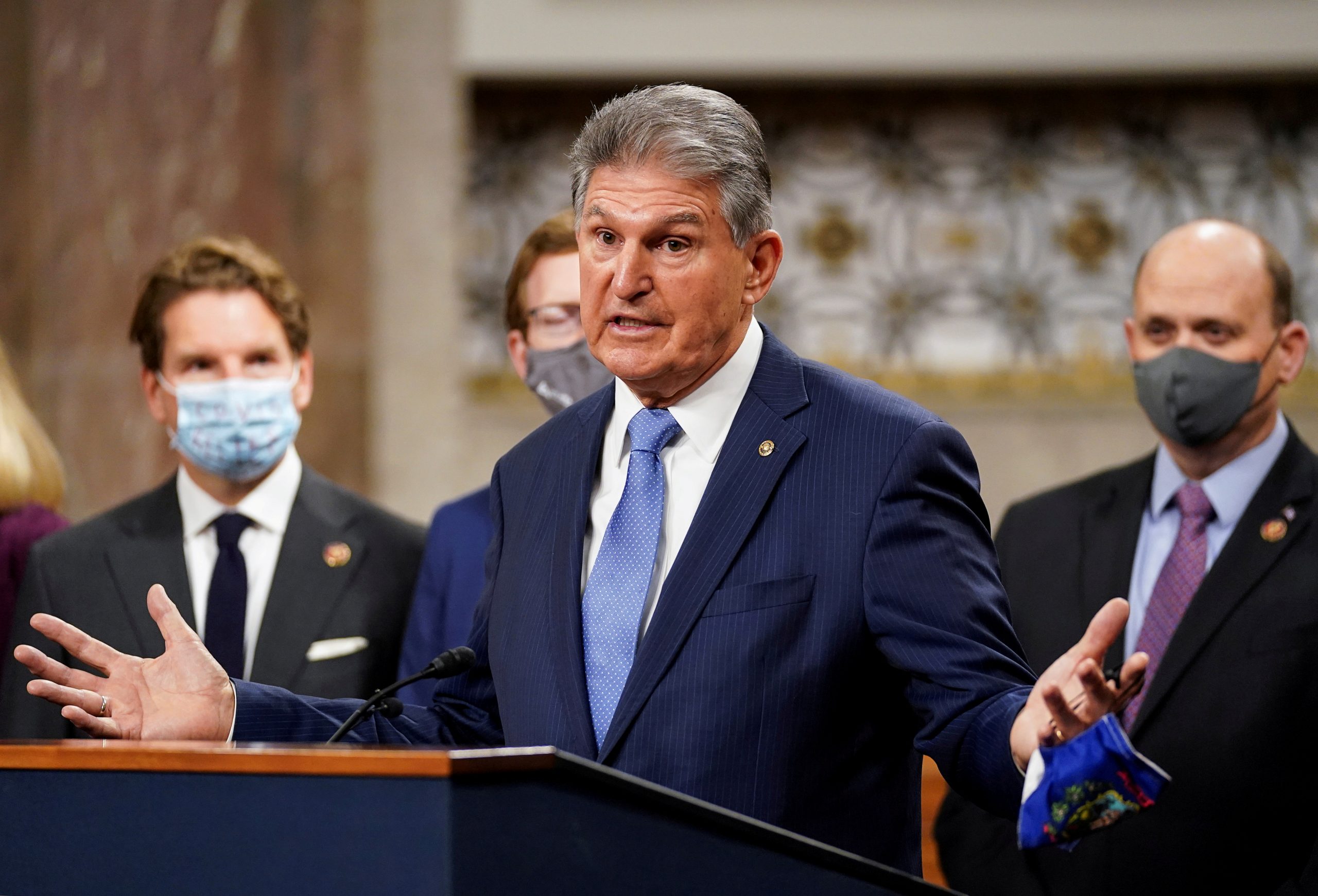In the wake of a report showing inflation’s claws have sunk into consumers, Democratic Sen. Joe Manchin’s motto might as well be “Build Back Slower.”
Inflation rose 6.2 percent in the 12 months that ended in October, the Bureau of Labor Statistics announced Wednesday. That’s the biggest monthly increase in 30 years, according to CBS News.
That has made the West Virginia senator, who has voiced concerns about trillions in federal spending fueling inflation, even more reluctant to sign on to the Democratic grab-bag of spending now before Congress.
According to a report from Axios, Manchin may want to set the package of progressives’ pet project aside until next year.
For now, he wants to focus on what he sees as critical issues that include getting a budget passed, raising the debt ceiling, and passing the National Defense Authorization Act.
There is also the thorny question of what the package of liberal programs will cost.
Manchin, like some moderate Democrats in the House, is skeptical that the cost of the package is actually what supporters maintain. He wants to see an analysis from the Congressional Budget Office of the actual costs of the programs and how much the tax increases Democrats propose would actually yield.
“What I see are shell games, budget gimmicks, that make the real cost of the so-called $1.75 trillion bill estimated to be almost twice that amount,” Manchin said earlier this month, according to The Washington Post.
The CBO said Tuesday it has no idea when it will provide the score for the bill estimating its final cost, according to CNN.
Infrastructure isn’t even SIGNED yet, & Manchin already weaseling away from #BuildBackBetter
We can reframe too.
Nothing else passes the Progressive Caucas until BBB passes the Senate.
Grind it all to a halt. We told you this crap would happen. pic.twitter.com/c4iRcjEGka
— VFX Nomad (@vfxartist1) November 11, 2021
Although House Speaker Nancy Pelosi has said the House will vote on the package next week, Manchin said there is “no rush” to finalize the proposal, according to the Daily Mail.
“It’s going to be a while,” he said last week of package negotiations.
Manchin on Wednesday noted inflation was not the flash in the pan the Biden’s administration said it would be.
By all accounts, the threat posed by record inflation to the American people is not “transitory” and is instead getting worse. From the grocery store to the gas pump, Americans know the inflation tax is real and DC can no longer ignore the economic pain Americans feel every day.
— Senator Joe Manchin (@Sen_JoeManchin) November 10, 2021
“By all accounts, the threat posed by record inflation to the American people is not ‘transitory’ and is instead getting worse,” Manchin tweeted. “From the grocery store to the gas pump, Americans know the inflation tax is real and D.C. can no longer ignore the economic pain Americans feel every day.”
Republicans are linking inflation with the Biden administration’s spending.
This will be the most expensive Thanksgiving in the history of the holiday.
The American people don’t deserve Biden’s #ThanksgivingTax!
— Rep. Elise Stefanik (@RepStefanik) November 10, 2021
“This will be the most expensive Thanksgiving in the history of the holiday,” Republican Rep. Elise Stefanik of New York tweeted. “The American people don’t deserve Biden’s #ThanksgivingTax!”
Ben Ritz, director of the Center for Funding America’s Future, said by starting new programs before the taxes to pay for them arrive, the Build Back Better agenda would add to the deficit and potentially make inflation worse, according to the Post.
“I don’t see how we can do that when inflation is two to three times our target,” he said.
Private sector voices have also come out against the package of social programs, which is funded by tax increases.
“We are fighting against the reconciliation bill because it’s bad for the economy and bad for business,” Neil Bradley, the executive vice president and chief policy officer at the Chamber of Commerce, said, according to Axios. “We fought for the infrastructure bill because it was good for the economy and good for business.”
This article appeared originally on The Western Journal.

























 Continue with Google
Continue with Google